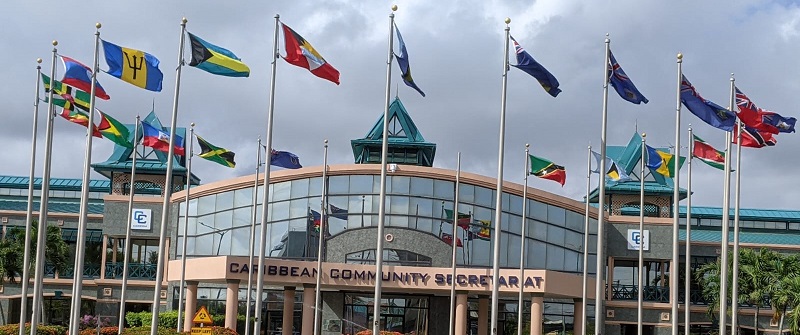
25 Apr Blog | The Caribbean Community’s determined crisis diplomacy strengthens its international standing
Guest blog by Nand C. Bardouille
As the latest Venezuelan security threat and the cycle of unrest in Haiti’s political morass came to a head, threatening to hem in Guyana’s quest for peaceful development and Haiti’s developmental prospects, respectively, the Caribbean Community (CARICOM) was faced with crises instigated from without and within its fold.
CARICOM, which comprises 14 mostly Anglophone sovereign small states, rose to the occasion and dealt with both matters successfully.
This is a credit to the bloc’s diplomatic chops. After all, for such states, system-level conditions do not necessarily lend themselves to unfettered foreign policy success.
Notwithstanding the international pecking order, which is far from being a level playing field, CARICOM shows that it is more than capable of looking out for its own. As such, it defies expectations and leads the way in securing home-grown solutions to some of the world’s most pressing international relations issues.
For our purposes, what comes to mind is the Joint Declaration of Argyle for Dialogue and Peace between Guyana and Venezuela, as well as the hoped-for establishment of the Haitian Presidential Council.
In the face of acute challenges to sovereignty and political authority, the bloc demonstrates its steadfastness in respect of these governance principles. Against this backdrop, it is now widely accepted that the regional grouping is vital to the delivery of meaningful multilateral diplomatic outcomes.
CARICOM makes all the difference to the ‘peace and security’ of its member states and, by extension, the international community. This is only one in a series of developments which, in the context of international organizations’ outsized place in CARICOM’s diplomatic playbook, subtly but no less significantly boost the grouping’s international prestige as well as its members’ interests.
CARICOM’s leadership is on display amid shifts in the international balance of power, marked by great-power rivalry. For my three-part assessment in that vein of the shifting dynamics of the Guyana-Venezuela border controversy, see here, here and here.
CARICOM is a part of the wider geopolitical conjuncture, whose contours are shifting toward multipolarity. It has good answers to associated challenges facing its members, with regard to the Venezuelan threat in question and insecurity à la Haiti; with the latter rooted in electoral and constitutional missteps and fuelled by a power vacuum.
It is noteworthy that CARICOM’s high-profile handling of this significant moment in Haiti’s post-independence journey highlights not only the stakes for that troubled country, but also the region’s associated interests (see my assessment here).
If CARICOM’s diplomatic response to and successes in these two highly charged moments have taught us anything, it is that the bloc has come into its own in spite of difficult odds. In situations where the Caribbean’s zone of peace hung in the balance and Haiti found itself ‘in the throes of a catastrophe’, even as the final outcome in each case is not yet clear, CARICOM was instrumental in delivering breakthrough agreements.
On 14 December 2023 and 11 March 2024 (the latter laying the groundwork for key political developments in Haiti a month later), with the backing of all concerned in the Venezuela/Guyana and Haiti cases, respectively, CARICOM’s diplomatic efforts paid off. Not only are these major achievements for CARICOM, which have garnered international goodwill and increased its international standing as a result, there is also a strong possibility of the bloc assuming an enhanced leadership role in the respective diplomatic briefs going forward.
Dr. Nand C. Bardouille is Manager of The Diplomatic Academy of the Caribbean in the Institute of International Relations (IIR), The University of the West Indies (The UWI), St. Augustine Campus, Trinidad and Tobago. The views expressed in this article are those of the author and do not reflect the official policy or position of The UWI.
Photo description: Caribbean Community Secretariat, Turkeyen Georgetown, Guyana. Photo credit: Nand C. Bardouille.




No Comments